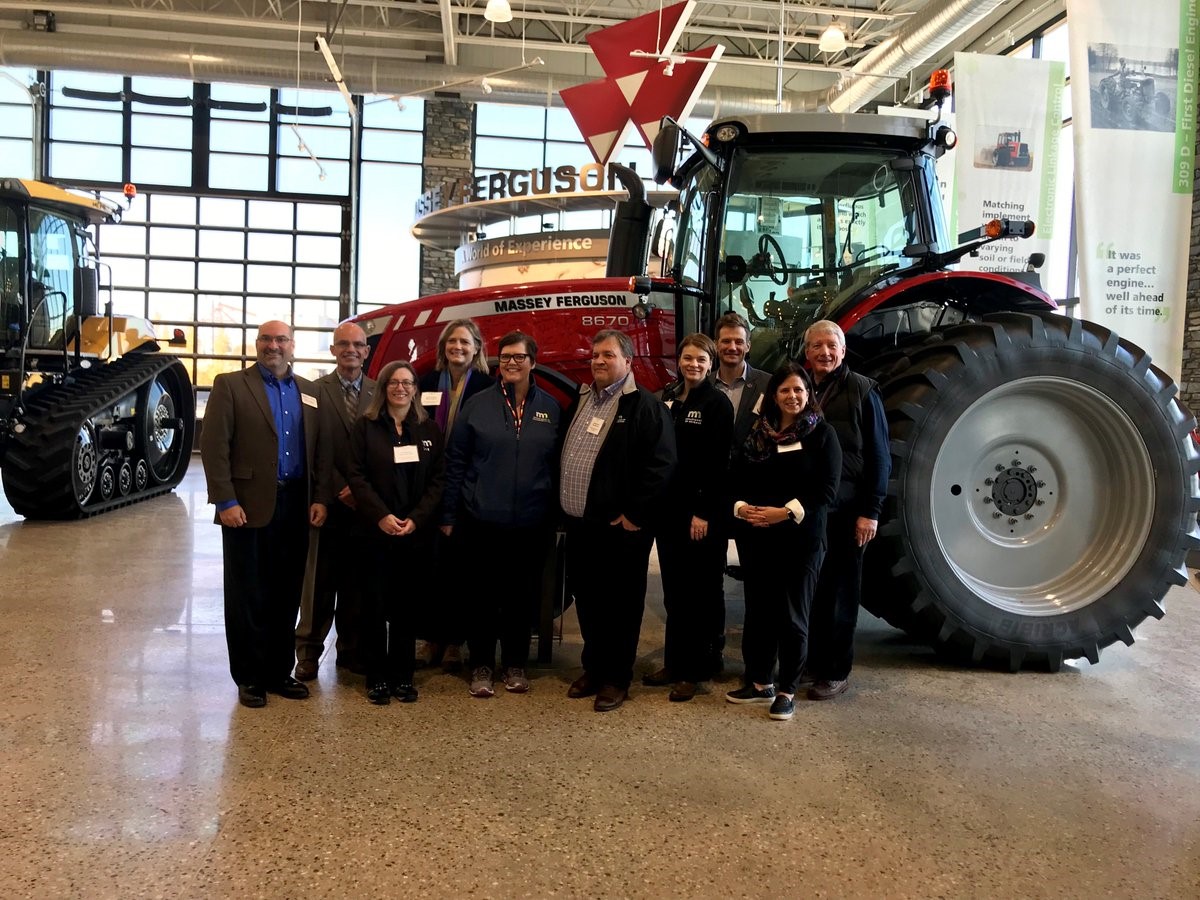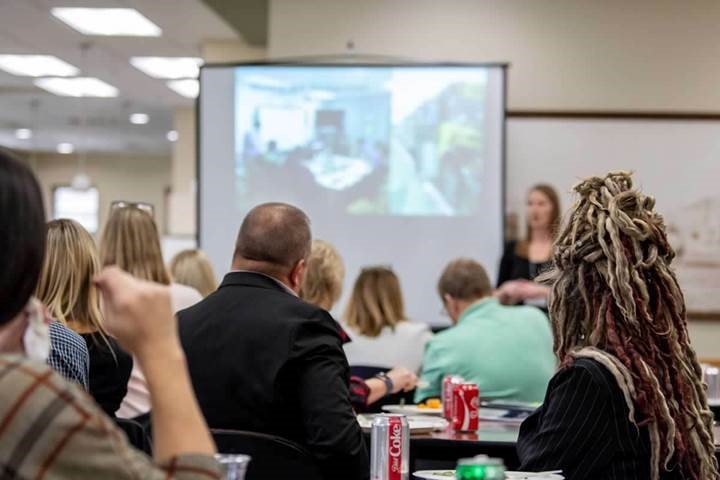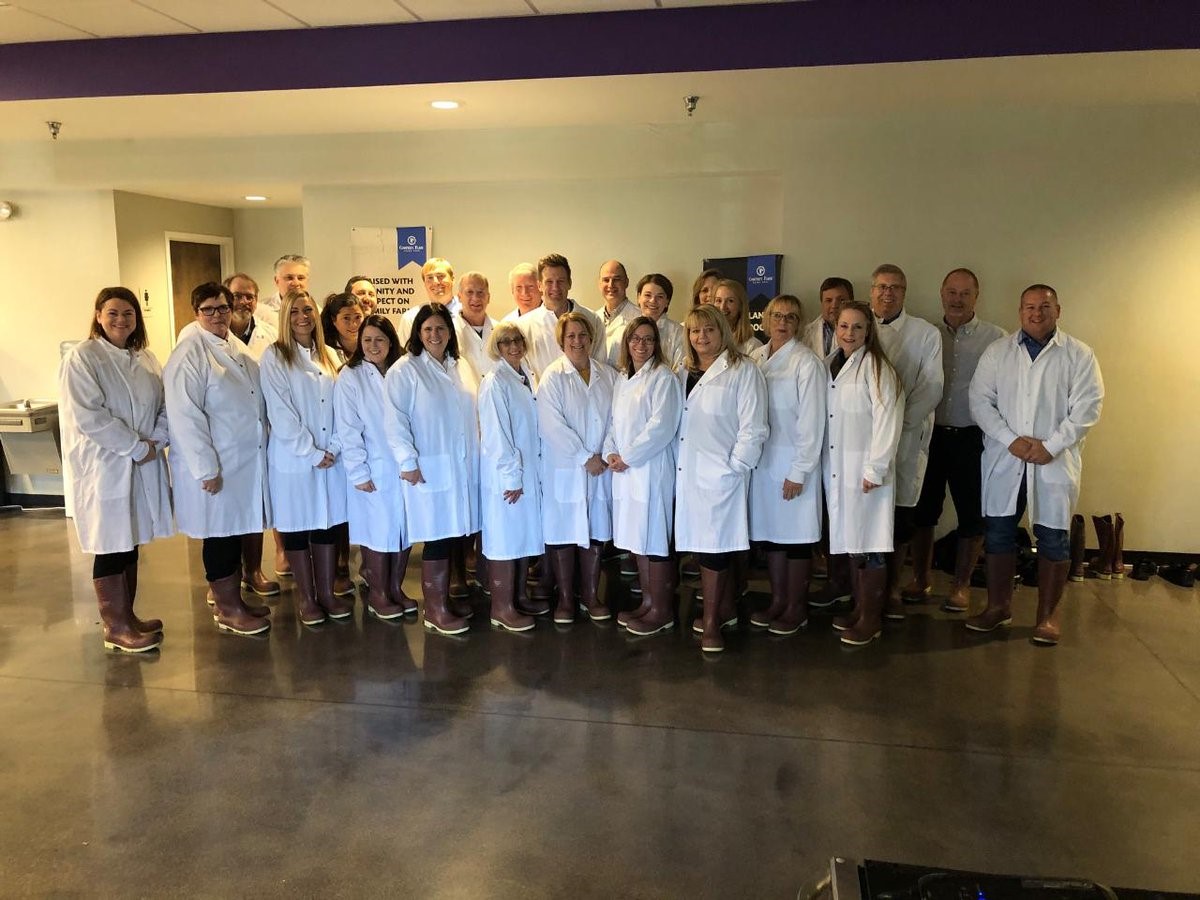11/1/2019 3:26:45 PM
Commissioner Steve Grove
There’s no substitute for seeing and hearing directly from people in Greater Minnesota about how government can coordinate and problem solve to serve our businesses and communities better. On October 23-24, I had the privilege of joining seven of my fellow state commissioners for a 12-stop bus tour across South-Central Minnesota. We visited 11 communities over two days as part of the annual Minnesota Business First Stop tour.
Minnesota Business First Stop exists to streamline the development process for complex businesses expansions, relocations and major startups that involve multiple state agencies. Since 2012, Minnesota Business First Stop commissioners have toured a different region of Minnesota every year to listen and learn from business and community leaders.
On this year’s tour, several company leaders shared examples of how they are introducing young people to new career opportunities happening right in their hometown. A few communities we visited had structured high school education and on-the-job learning opportunities to connect students with local employers.
 For example, AGCO in Jackson partners with local schools to run assembly academies that provide students a glimpse into 21st century manufacturing. AGCO’s state-of-the-art facility manufactures custom-configured tractors and other agricultural machines and ships them all over the world — giving its employees as well as new trainees exposure and connection to the global market.
For example, AGCO in Jackson partners with local schools to run assembly academies that provide students a glimpse into 21st century manufacturing. AGCO’s state-of-the-art facility manufactures custom-configured tractors and other agricultural machines and ships them all over the world — giving its employees as well as new trainees exposure and connection to the global market.

South-Central communities — like every part of Minnesota — are becoming more diverse. We know that 70 percent of our workforce growth in the coming decade will be from communities of color. On our tour, we heard stories of how rural communities in southern Minnesota are embracing new cultures and welcoming people of different racial and ethnic backgrounds, which is proving to help them build a more robust workforce.
Employers like Creation Technologies in St. Peter shared how they reached out to local Somali-American leaders to encourage community members to apply to local jobs and engaged in cultural training, which not only helped integrate new employees into the company environment, but also spurred economic growth for the region.
 Another theme that came up at almost every stop on our tour was the lack of affordable, quality child care in Minnesota. From Oilseed Processing plant CHS in Fairmount to Comfrey Farms Prime Pork, the child care shortage is an issue affecting companies big and small across Minnesota. In Greater Minnesota, the number of child care providers continues to decline, which hits employers looking to draw much-needed workers to their businesses and expecting parents who struggle to find a child care slot that allows them to be active participants in the workforce.
Another theme that came up at almost every stop on our tour was the lack of affordable, quality child care in Minnesota. From Oilseed Processing plant CHS in Fairmount to Comfrey Farms Prime Pork, the child care shortage is an issue affecting companies big and small across Minnesota. In Greater Minnesota, the number of child care providers continues to decline, which hits employers looking to draw much-needed workers to their businesses and expecting parents who struggle to find a child care slot that allows them to be active participants in the workforce.
Quality child care is vital to growing our workforce and increasing our economic prosperity in Minnesota, and we’ll continue to explore new resources and policies that grow our workforce and ensure all families can access quality child care. In late October, DEED awarded a total of $727,500 in Child Care Economic Development Grants to 11 organizations throughout Minnesota to increase families’ access to quality child care. But Minnesota needs to do more. Ensuring Minnesota families have access to quality child care will require a concerted effort, including increased investment in child care workforce development, increased wages for child care workers and increased funding to help low-income families afford quality child care. That’s why it’s so important that we are working together through the Children’s Cabinet , an interagency partnership Governor Tim Walz and Lt. Governor Peggy Flanagan have charged with helping make Minnesota the best place to raise a family — for everyone.
It was a unique experience to have eight state commissioners traveling together for two days, and we learned a lot about the intersections of our work and how we can better serve the workers and businesses of Minnesota. Working together, state government can partner with business to build a vision of One Minnesota in which every worker, business, and community can grow and prosper.
As always, if you have ideas on how we can better serve you, please reach out directly and let us know.
-Commissioner Steve Grove
workforce